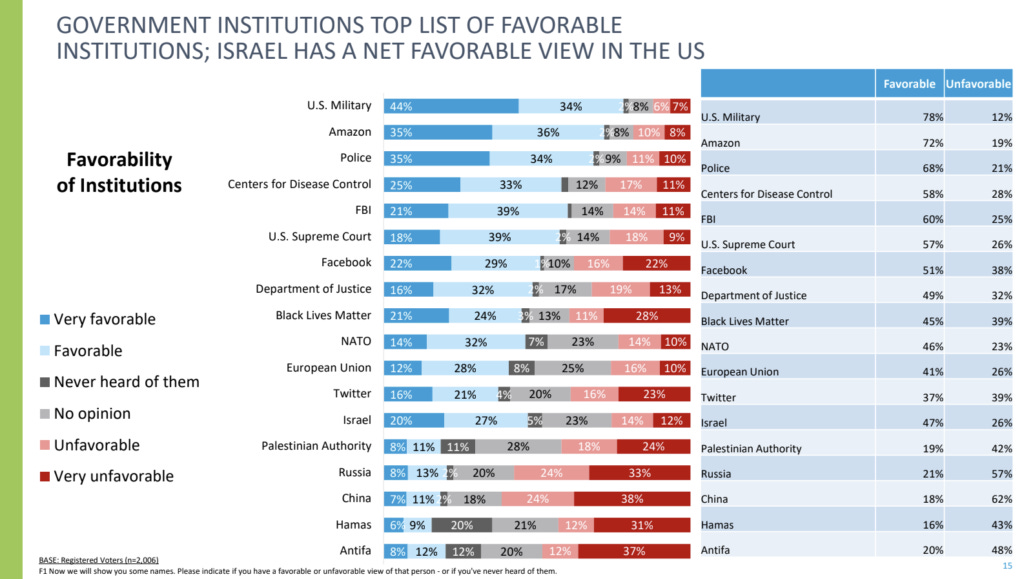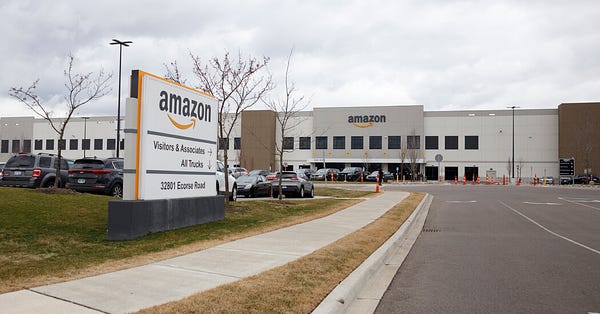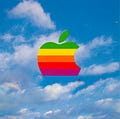#76 It's Time to Give Tim Cook the Credit He Deserves (Let Tim Cook)
Tim Cook has been the perfect steward for the products Steve Jobs helped invent
On June 6th, 2011 Steve Jobs gave his last keynote presentation to the world at WWDC. One day later, on June 7, 2011, Steve made his final public appearance at a Cupertino City Council meeting about the plans for the new Apple headquarters in Cupertino. Just about a month later, on August 24, 2011, Steve resigned as Apple CEO and passed the reigns to his successor, Tim Cook.
To the Apple Board of Directors and the Apple Community:
I have always said if there ever came a day when I could no longer meet my duties and expectations as Apple’s CEO, I would be the first to let you know. Unfortunately, that day has come.
I hereby resign as CEO of Apple. I would like to serve, if the Board sees fit, as Chairman of the Board, director and Apple employee.
As far as my successor goes, I strongly recommend that we execute our succession plan and name Tim Cook as CEO of Apple.
I believe Apple’s brightest and most innovative days are ahead of it. And I look forward to watching and contributing to its success in a new role.
I have made some of the best friends of my life at Apple, and I thank you all for the many years of being able to work alongside you.
Steve
On October 5th, 2011, Steve Jobs passed away. Over a decade later, the company and products he helped create live on and continue to make the world a better place.
In his resignation letter, it’s striking how clear he was about passing the torch to Tim Cook. His affinity for Tim started many years prior. It was Apple, and Steve in particular, who begged Tim Cook to join the company in the 90s, and he turned them down over and over again. In a commencement speech at Auburn he told stories about how he was advised by friends and colleagues he respected dearly that ‘I would be a fool to leave Compaq to join Apple’. When he finally took a meeting with Steve, he was convinced to take the leap and join Apple.
The first product Steve and Tim worked on together was the iMac. At the time, Apple had a product visionary in Steve, and a really talented team of technology creators, but the company was a mess. They needed rebuild and modernize their manufacturing capabilities to compete with other computer companies like Dell who were famous for their just in time factories and supply chains. This is when Tim’s legacy at Apple began.
In the years to come, Apple would famously release products with Steve Jobs keynotes where he would be heralded as a product visionary. I believe this to be true, however, behind the scenes was an army of talented people who were doing some the best work of their lives to make these ambitious products come to life. One person was particularly important: Tim Cook.
Last week was the most recent Apple product keynote where Tim Cook announced the newest additions to the Apple product ecosystem: iPhone, AirPods, and Apple Watches. The beginning of the watch segment began with a remarkable introduction about how Apple Watch has saved individual’s lives. Dear Apple. It was marketing that reminded me of Steve. About who Apple is and how their products are changing the world.
Steve was famous for talking about how ‘marketing is about values’ and when he introduced products he defined their success by how they made people feel. He was also famous for talking about how technology was about people, not technology.
“We’ve always tried to be at the intersection of technology and liberal arts, to be able to get the best of both, to make extremely advanced products from a technology point of view, but also have them be intuitive, easy to use, fun to use, so that they really fit the users – the users don’t have to come to them, they come to the user.”
The iPhone is used by more than 1 billion people, they sold more than 100 million pairs of AirPods in 2020 alone, and the Apple watch is used by more than 100 million people. This is not a coincidence. Steve knew that Tim was going to carry the Apple product ecosystem into a new era where they would permeate the entire world. This would not have happened if they would’ve lost focus about these products being about people.
This would also not be true if there wasn’t massive technological leaps taking place inside, between, and around these products. For example, Steve knew how important the developer ecosystem was to the success of Apple products. Over a decade after his last World Wide Developer Conference keynote, tens of millions of additional developers gather at WWDC each year to prepare for upgrades to the Apple Ecosystem they are building for. Another example of this comes with who he chose as his successor in Tim. He knew Apple needed to become a company that has an impeccable ability to build hardware products at scale in order for them to reach the amount of people he wanted them to, and to unlock their true potential to change the world. This doesn’t change the fact that Tim’s keynote wasn’t about all the proprietary Apple hardware, like their new chips, going inside the newest versions of Steve’s original inventions. Or the tens millions of software developers who watched last week’s event with excitement for what they are going to create for the next wave of Apple hardware and software. Tim’s Keynote, like Dear Apple, were about how Apple product made people feel, and how important these products are in their lives.
That is how I feel. The Dear Apple, Apple Watch introduction reminds me of how consequential the tools and products people are building for the Apple ecosystem and newest products are on people’s lives. But not everyone feels this way.
What did we expect from Tim Cook, to abandon the products that Steve Jobs helped invent? Tim was the perfect person to take these new products from purely aspirational products to mission critical products. Products that were capable of permeating the entire world.
Another iPhone is not just another iPhone
I use my iPhone everyday, just as I did when I got my first one over a decade ago, but some things are different. For example, the iPhone I use today has a battery that lasts many hours more than my first iPhone, even though the apps I use on my iPhone today are far more robust compute heavy. The App store (that is controversial, and i’ll touch on that in a moment) that supports the apps on my iPhone, now includes millions of additional 3rd party applications. From banking and brokerage services, to healthcare, to transportation, and the list goes on. These are not play apps, these are mission critical apps.
When the iPhone was created, Steve had a vision for end to end control of the Apple ecosystem and App Store. They made conscious decisions, I believe in the effort to protect their customers, like human review of applications before they are published in the App Store to the public. These decisions, like many others, were controversial. They required individual human review of the apps being submitted to their store, and came with a higher take rate for Apple for purchases made in 3rd party apps on the iOS store. But they also came with safety, and security, and are another example of how Apple users today benefit from decisions Steve stood behind many years ago, and ones that Tim protects today; even in the face of criticism.
Tim is a steward for a long list of decisions Steve believed in. Encryption is an example of controversial technology used to protect user data within the Apple ecosystem that governments have challenged ruthlessly. Years after Steve’s passing, Tim takes the heat and continues to be a steward for principles Steve believed in. Principles that Steve knew Tim would face criticism for protecting. A marque example of this becoming a reality came in 2015, when the United States government requested backdoor access to be built into iPhones.
On the surface, this could seem like a strange case to fight against. But Tim knew this was a decision that carried precedent that was much larger than this individual case. In 2018, Tim gave a talk about fundamental human rights and how important it is that Apple products are built with the western ideal individual privacy and what we consider fundamental human rights.
We are at a critical inflection point in the world. Technology platforms are becoming so powerful that individuals and groups who want to cause harm to others can do so if they are not built from the ground up with protections against these very actions. Governments who do not believe in fundamental human rights, fundamental rights I believe are sacred, that people died fighting for over the previous centuries in the United States in particular, can be lost much more quickly than we may realize. With great power comes great responsibility. Steve knew Tim would have to fight some unpopular battles to realize his vision for Apple products to meet these standards.
Technology products are global in nature now. This means people around the world are going to be using products in places where governments have different opinions on issues like data rights and privacy. As you may know, Huawei is an Apple competitor out of China that does not adhere to the western principles Tim Cook and Apple are fighting for. Rooting for the big guy like Apple could seem like fanboy behavior, yet I think we are in a moment where it is absolutely necessary to the future of fundamental human rights. There is a Orwellian version of the future that is dystopian like the George Orwell 1984 account consisting of ‘perpetual war, omnipresent government surveillance, historical negationism, and propaganda’. Steve Jobs new this to be the case when choose Tim Cook as his successor, and he passed the torch to Tim Cook because he knew he was someone who would be more than an excellent operator upgrading Apple’s business. He believed in the same principles Steve did.
The next era of Apple
I believe Tim Cook is one of the most humble leaders in the world. He leads the effort to revolutionize the products Steve helped invent, stands up for principles that are fundamental for a bright future, and I think he is priming Apple for the next phase of its journey.
One example of this is Apple’s slow and steady entrance into one of the world’s biggest and most broken industries: healthcare.


Not just any company can revolutionize an industry like the healthcare industry. For one, the innovation we are looking for could require individual biotech gadgets and technologies that reduce our reliance on doctors and healthcare institutions. For example, maybe I’m able to perform basic health checkups through my devices, like Apple Watch and share this information with my doctor to reduce the cost of my care over time. This became even more obvious as I observe my father, who struggles with health complications, use devices at home to monitor his health with his doctors without the need for trips to the doctors office and hospital. He relies on sophisticated technologies and biotech gadgets, built by talented people, to make this possible. He is not digitally native like I am. In fact he does not text. But he relies on these technologies that are accurate enough, powerful enough, and intuitive enough for him to have better care than the generations before him received. I’m grateful for these technologies.
To revolutionize the healthcare industry you need more than powerful, accurate, and intuitive technology products though. Healthcare data is at the top of the list of data that can be weaponize against individuals. For example, insurers who may have a lack of incentive to cover those with pre-exciting conditions could use an individuals private healthcare data against them, causing their cost of insurance to skyrocket, or even worse, make it difficult for them to get covered all together. I think these fears are intuitive for everyday folks. According to a 2021 study, Amazon is one of America’s most trusted institutions, behind only the US military (it’s shocking to not see Apple in this list).

The coverage about Amazon’s acquisition of One Medical proves people may not be ready to trust even our most trusted institutions, like Amazon, to fix our most broken industries.


It’s going to take technologies and technology products that are built from the ground up with fundamental individual human rights in mind to solve these problems and transform these broken industries. I believe Tim Cook and Apple’s stance on fundamental human rights have primed them to capture this moment.
In addition to revolutionizing our most broken industries and solving our most important problems, like a broken healthcare system in the richest country in the history of the world, I think Tim Cook is humbly priming Apple with new products that are not yet mainstream like the smartphone is. Technologies that we know may revolutionize the world, but are not ready for prime time. Some examples include AR, VR, and the smart car. Smart people go to work at Apple everyday, doing some of the most important and consequential work of their lives, on products we have not heard about quite yet, behind Tim Cook’s leadership. Will Tim Cook pass the torch to a visionary to release these new products into the world? We will have to wait and find out. One things for certain though: his legacy will carry on through the next era of Apple products and technologies. Just as Steve’s does in today’s Apple products. As the leader of what I believe to be the most important institution in the world, the battles he’s fighting today, public or private, popular or not so much, are critical to the success of Apple’s future and the future of the world.
Today iOS 16 is being released to iPhone users around the world. Even if it feels like just another Apple software update, it’s a part of a story that is much bigger.
Tim Cook is one of the most important leaders in the world. I think he’s one of the most humble and revolutionary people on the planet. He’s no Steve Jobs, he’s Tim Cook, and he’s carrying Steve’s legacy into the future. I think Steve would be incredibly proud of the company Apple has become.
Lucas







